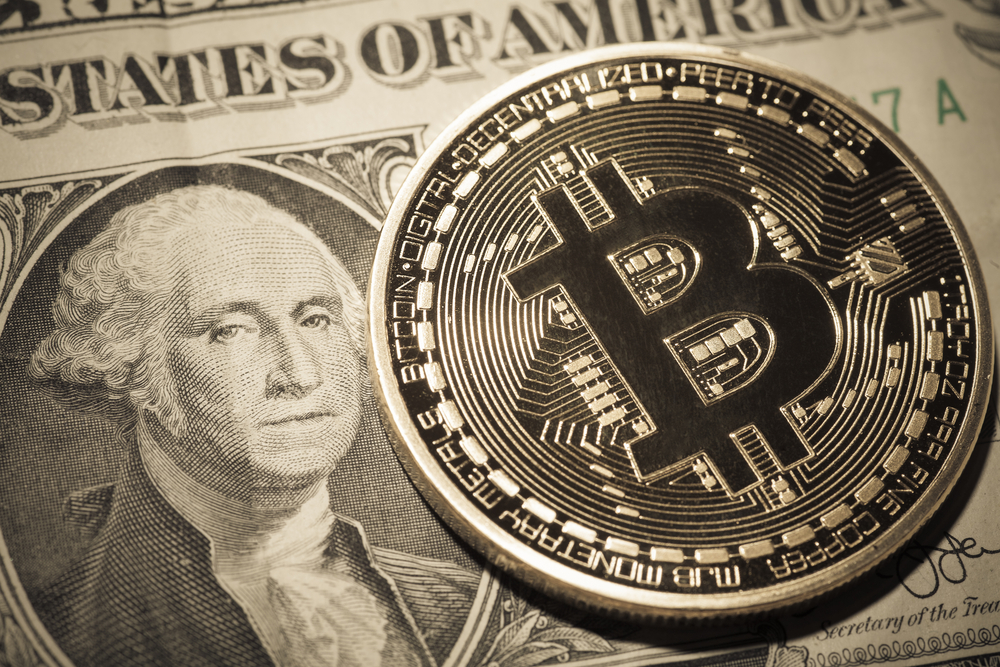Wall Street Journal: Bitcoin as Terrorist Money is Exaggeration

Source: Shutterstock
In the Morning Risk Report , the Wall Street Journal emphasized that law enforcement agencies and financial organizations that are describing bitcoin as a terrorism financing tool are exaggerating the risks involved in digital currencies including bitcoin.
Bitcoin as Terrorism Money Narrative Pushed by Governments
Since the beginning of 2016, law enforcement agencies including the FBI and Europol have begun to describe bitcoin as a terrorism financing tool due to its use case in the dark web. However, these law enforcement agencies were harshly criticized for misleading the public, as fiat money or cash, which serves the global financial ecosystem as the base monetary system, accounts for nearly 97% of all criminal activities due to its complete anonymity.
Analysts and supporters of bitcoin expressed their concerns over governments and law enforcement agencies’ attribution of bitcoin to criminal activities, mostly because bitcoin is not completely anonymous as anyone can track down the flow of transactions using the public blockchain. When a criminal tries to sell bitcoin in a regulated bitcoin exchange, with KYC and AML systems in place, government agencies will be able to unravel the identity of the bitcoin user with ease.
More to that, criminals are always in search for better technologies and alternatives. Criminals utilize automobiles, cash, phones, and other technologies to supplement their operations. However, this shouldn’t necessarily lead to the struggle of the general public. In other words, government agencies shouldn’t attempt to ban every technology utilized by criminals across the world. If so, no one will be able to utilize the internet, bitcoin, banking system, cars, amongst many other technologies.
International defense and security think-tank Royal United Services Institute consultant and former US Department of the Treasury’s Office of Terrorism and Financial intelligence official David Carlisle stated:
“Treating cryptocurrencies as an exceptional threat creates the misleading impression that more conventional financial products are not already equally, or more, vulnerable to terrorist exploitation.”
Terrorist Financing: Bitcoin Vs. Conventional Banking
Essentially, bitcoin is a decentralized protocol built to facilitate payments between two parties with the absence of moderators or third party service providers. Everyone within the network has equal authority over each other and there exists no administrators who can manipulate, alter or delete transactions from the public blockchain.
This decentralized architecture of bitcoin prevents exploitation and manipulation of funds, unlike conventional banking. Over the past decade or so, banks have been exposed for leading fraudulent operations that have led to hundreds of billions of dollars in losses. In fact, it was revealed last week by Bloomberg that the world’s largest banks were fined US$321 billion in total since the 2008 financial crisis.
In consideration of this staggering number, it is dishonest and deceitful of governments to attribute bitcoin as criminal and terrorist money, when their most trusted partners have deluded the public for decades before being fined billions of dollars for their actions.
Carlisle also noted that terrorist groups including the ISIS have their own forms of money such as their unique minted gold coins as the unified currency. Thus, bitcoin or other digital currencies will not be a priority for terrorist groups especially if bitcoin is difficult to obtain without forfeiting user identity due to KYC and AML regulations implemented across the world.
Image from Shutterstock.